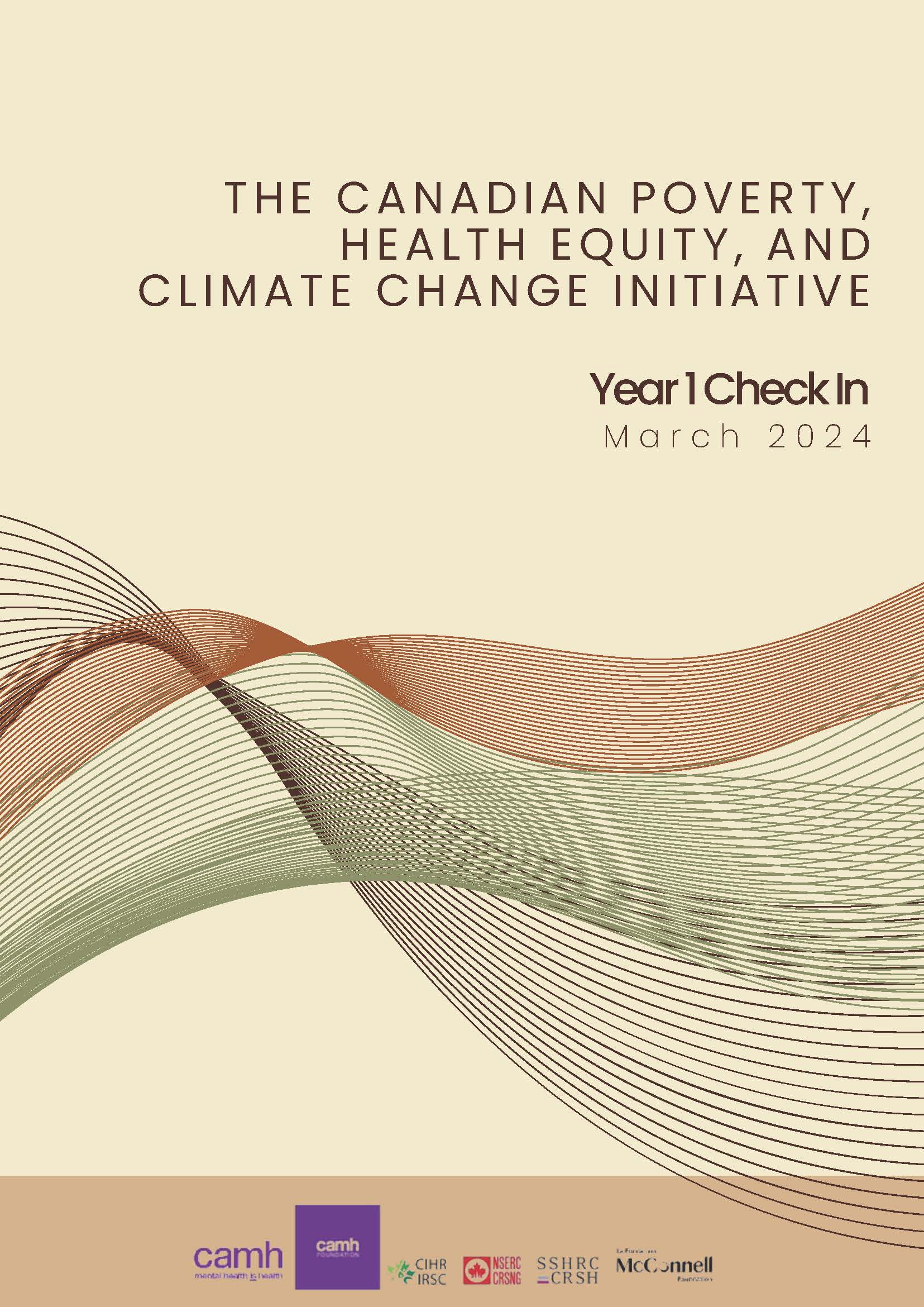The Year 1 Report focuses on the activities undertaken and planned as part of the Canadian Poverty, Health Equity, and Climate Change Initiative. The poverty-climate-health nexus in Canada is a broad topic, nested within the well-known ‘threat multiplier’ nature of climate change. Our first year of work has revealed large knowledge and action gaps. Poverty is a key factor in individual and community vulnerability to environmental risks. There was a consensus on this point in expert think tanks and the poverty-climate vulnerability risk connection is very evident in the research literature. These risks revolve around, and are compounded by several intersections, as a function of factors such as age, gender, and access to shelter. Indigenous and racialized identities and experiences play key roles as well, with climate change representing another facet of colonial histories characterized by rights violations and exclusion. Specific environmental risks addressed in the literature and in our think tanks included heat, wild fires, air pollution, and secondary risks such as poor food security.
The report provides an overview of our work to date, covering all major activities, such as a scoping review and conducting themed think tanks across the four main areas of focus: children and youth, homeless and precariously housed populations, older adults, and women’s health. We also outline the cross-cutting considerations that can inform future work in this area and the responses to identified issues. A strategy for the upcoming activities of the initiative is provided.

